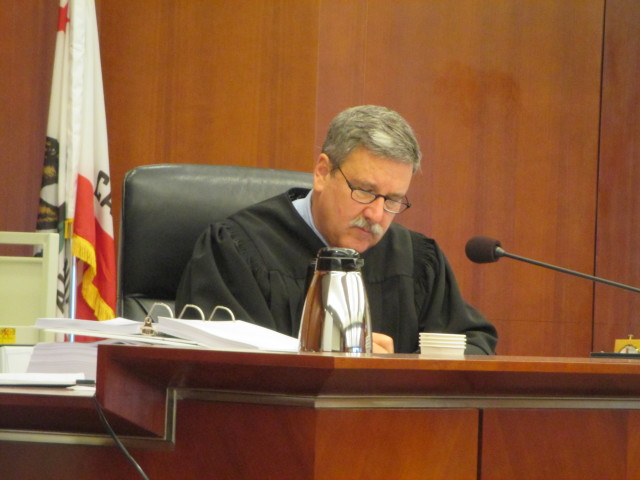
By Tim Redmond
NOVEMBER 3, 2014 – So many stories, so little time, so in the middle of a heated election I missed the last day of testimony in the City College case. But the Chron’s Nanette Asimov has a report that shows how the ACCJC commissioners either intentionally or out of ignorance missed the entire point of the school’s financial troubles:
The lawyers called four commissioners to the stand who said they voted in 2012 to put the college on notice that it would lose accreditation if it didn’t come into compliance with all standards within a year, and in 2013 they voted to revoke.
“Frankly, I was appalled at the fact that they had a financial situation that was not sustainable,” testified Sharon Whitehurst-Payne, whose term on the commission ended in June. She also said the college “had not taken us seriously” about repairing its financial and governance problems, and that she “didn’t see that much had changed” by 2013.
She said “93 percent of (college) income was going toward salaries and compensation … I would have been looking for them to go back to the union and say, ‘This is not sustainable. … If we have to take a pay cut, that’s what we all have to do.”
In the audience, faculty looked shocked. During a break, Alisa Messer, who was faculty union president at the time, said employees had taken a 9 percent pay cut and campaigned vigorously for Proposition A — a parcel tax bringing in $15 million a year to City College — and Proposition 30, a statewide tax to end years of college cuts.
“My reaction can’t be quoted in the paper,” Messer said.
On the stand, Commissioner Frank Gornick said college officials themselves told the commission in 2013 that the college remained in “significant disarray,” and that there was “an intimidating environment” for those who wanted to comply with accrediting requirements.
Commission Chairman Steven Kinsella said he voted to revoke because the college owed more money than it had in the bank, which “technically means they’re insolvent.”
Deputy City Attorney Ron Flynn reminded Kinsella that Prop. A would bring in millions of dollars a year, and the money would arrive within weeks of the commission’s revocation vote. “Was that an improvement?” he asked.
“No,” Kinsella said.
The testimony earlier in the week made clear that City College was “insolvent” in part because the state of California not only cut its support to community colleges in the Great Recession – but also delayed payments, sometimes pushing the mandated funding into the next fiscal year. So on the books, the school was out of cash; in reality, the City of San Francisco was providing bridge loans until the (guaranteed) state money arrived.
There was never a missed payroll. Vendors got paid. The lights were on.
And more important, City College – the staff, the unions, the administration, the trustees – decided as a matter of consensus policy not the change the school’s mission or decimate its course offerings in tough times. Instead, the faculty took pay cuts, the administrative overhead was reduced – and the school decided to try to solve the long-term problem in a way that used to be pretty common:
They decided to ask for a tax hike.
Instead of cuts, City College sought revenue-side solutions. And that approach worked: Voters at both the state and the city level agreed to give the college more money.
Is there something fundamentally wrong with that? Have we gone so far to the right as a society that we have to accept as gospel that the only answer to funding challengers in the public sector are more and more cuts?
That’s what the ACCJC seems to be saying. City College wasn’t willing to cut enough, wasn’t laying off faculty and eliminating classes, wasn’t following the Republican playbook … and instead was looking for community support.
Right now, today, City College is financially stable in part because of new local and state taxes, and in part because state Sen. Mark Leno got a measure through guaranteeing funding during this nasty accreditation battle. The only reason the school isn’t doing as well as it should be is that the ACCJC, instead of helping solve the revenue problem, tried to shut the school down. Because it wasn’t cutting enough.
And that, of course, caused an enrollment drop, which caused a revenue drop … which made no sense at all.
That’s one of the huge lingering issues in this trial – and it will be up to Judge Curtis Karnow to sort it out.




